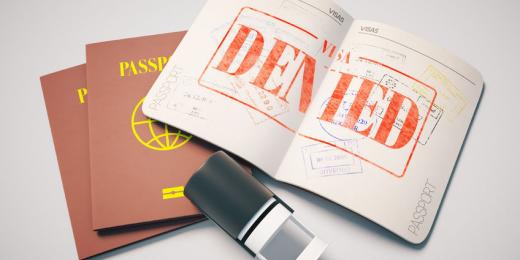My family visit visa has been refused – what can I do?

A visit visa is available to someone who wants to come to the UK for less than 6 months and for many with relatives and friends in the UK, it’s a vital mechanism to allow family relationships to be maintained when people live in different places, either because they choose to do so or because, as London Immigration appeal lawyers are only too aware, they cannot satisfy the UK’s stringent rules on family settlement. Since 2013, full rights of appeal for the refusal of a family visit visa have been unavailable, leaving applicants with a confusing array of options including either re-applying, or applying for judicial review of the refusal. An appeal is only available if you can engage Human Rights grounds. We would always recommend taking specialist legal advice from Immigration solicitors with experience handling cases on the UK Immigration rules on family settlement if you find yourself in this situation.
Is reapplying for a visit visa a waste of time – and money?
Reapplying for a visit visa can be a worthwhile exercise if you understand the reason the visit visa was refused and you are confident that you can address the problems that led to the refusal in the first place. It may be that evidence was missing from the original application, or the entry clearance officer who examined the original application has clearly overlooked evidence that was included. In these cases, it may be worth re-applying (or asking for a re-consideration). If you can show that it was the oversight of the entry clearance officer that led to the family visit visa application being rejected, it is also worth considering a request for a waiver of the fee for the new application.
When will reapplying be ineffective?
While re-applying or reconsideration may be the best approach to dealing with a family visit visa refusal, there will be situations when some kind of legal action will be more appropriate. If the visa was refused because the entry clearance officer felt the documentation provided was inadequate or from an unverifiable source, and you have no other documents to submit, reapplying will be a waste of time. Equally, in cases where the applicant has been refused entry to the UK for a specific period of time for some reason, or because there is a belief that the applicant is either not a genuine visitor or does not intend to return home, reapplying or reconsideration are unlikely to be effective.
When is it appropriate to appeal ‘on Human Rights grounds’?
Following the case of Baihinga it is understood by the best Immigration solicitors that ‘Human Rights grounds’ include any case where the right to family life or private life is in play. While the Home Office does have the power to refuse visit visas, despite some arguments to the contrary, based on comments in the Charles case that the effects of the domestic law – the Immigration rules – are foreseeable – it can be worth appealing on Human Rights grounds if you believe you can potentially succeed. Home Office guidance is narrow around Human Rights grounds and does not accord with the latest guidance form the courts in the cases of Mostafa and Baihinga – and ultimately it is for the court to say whether someone has Human Rights grounds for an appeal, not the Home Office. There are still many ‘unknowns’ in visit visa appeals on Human Rights grounds. A solicitor with experience of article 8 Human Rights act Immigration cases will be able to advise further on this.
Are there disadvantages to an appeal on Human Rights grounds?
The key disadvantage to embarking on an appeal on Human Rights grounds is that it can take time to get before the court – and the judge may then decide that you did not have a ‘Human Rights ground’ for appeal after all. You will have no way of recovering the time or the expenses you invested in the appeal and will have lost the chance of bringing judicial review proceedings.
How could judicial review help when my visit visa is refused?
For someone who has no realistic grounds of succeeding with a re-application or is unable to challenge a visit visa refusal by way of an appeal on Human Rights grounds, the alternative may be an application for judicial review. Although it is possible to do this without legal support, finding an Immigration solicitor with experience of judicial review procedure and Immigration will significantly increase your chances of a successful outcome. This is particularly so in cases of family visit visa refusals where there have yet to be any test cases to establish whether judicial review is available if an appeal on Human Rights grounds could be possible – or whether the appeal route must be exhausted before judicial review can be considered. Equally if there is some other reason, not related to Human Rights grounds, on which to base an action for judicial review, that may offer the answer.
OTS Solicitors are experienced Immigration and human rights lawyers, highly recommended in the Legal 500 for both these areas of law. For questions about how to proceed if your visit visa has been refused, and expert legal advice and support, don’t hesitate to contact us, in confidence on 0203 959 9123.


